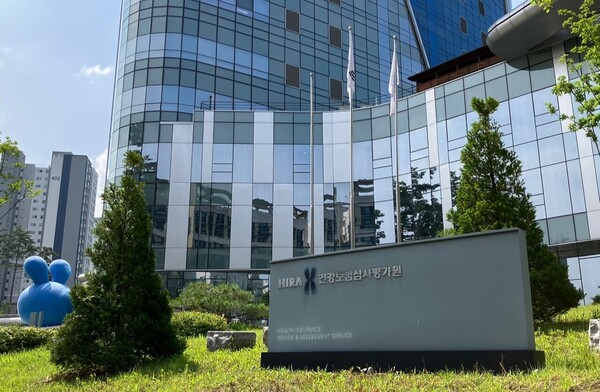The Health Insurance Review and Assessment Service (HIRA) recently hit back against criticism about the delayed reimbursement process for new drugs, including Enhertu and Ilaris.
HIRA issued a news release last Wednesday, rebutting some media reports that the government's lukewarm attitude is delaying the reimbursement of new drugs, emphasizing that it is continuously providing insurance benefits for these drugs.

At the Drug Reimbursement Evaluation Committee meeting held Jan. 11, HIRA decided to rediscuss the appropriateness of reimbursement for Enhertu (trastuzumab deruxtecan), a new drug co-developed by Daiichi Sankyo and AstraZeneca for breast and stomach cancer, in February, triggering protests from some breast cancer patient groups that launched a petition campaign.
Novartis’ Ilaris (canakinumab), a treatment for rare genetic recurrent fever syndrome, has also failed to get coverage since its approval in 2015, prompting public petitions from patients.
"To shorten the evaluation period of a new drug, pharmaceutical companies must cooperate positively by, for instance, submitting complete data to prove the clinical utility and cost-effectiveness of the drug," HIRA said.
The government agency responsible for deciding drug insurance explained the reimbursement process. “When a pharmaceutical company applies for insurance registration for a new drug, the HIRA evaluates the appropriateness of the reimbursement after deliberation by the Drug Reimbursement Evaluation Committee, considering the clinical usefulness, cost-effectiveness, and financial impact of the drug," it said.
In reviewing the appropriateness of a drug's reimbursement, if it is determined that the data submitted by the pharmaceutical company lacks clinical evidence or needs to be supplemented to prove economic feasibility, the pharmaceutical company will be requested to supplement the data, it added.
"In recent years, the social demand for expensive new drugs for severe diseases with therapeutic effects has increased, and the number of applications for health insurance drug determination has increased," HIRA noted. "In the process of reviewing new drugs, there have been delays in the submission of related materials, such as evidence of clinical effectiveness and financial sharing plans by pharmaceutical companies, resulting in delays in the listing period of some drugs."
HIRA squarely refuted the industry’s complaint by holding drugmakers accountable for the delay by failing to submit data to the level required by the review committee.
"Particularly, in the case of drugs that omit economic evaluation, the cost-effectiveness of the drug is unclear, so it is essential for pharmaceutical companies to submit relevant data," HIRA said. "We will do our best to ensure prompt evaluation to strengthen patient access to treatment for expensive new drugs."

